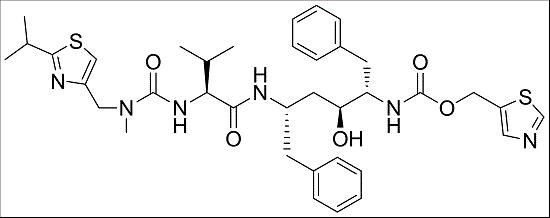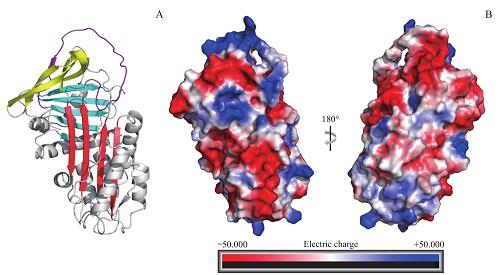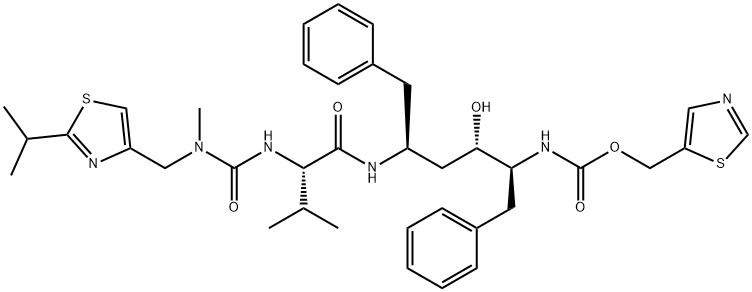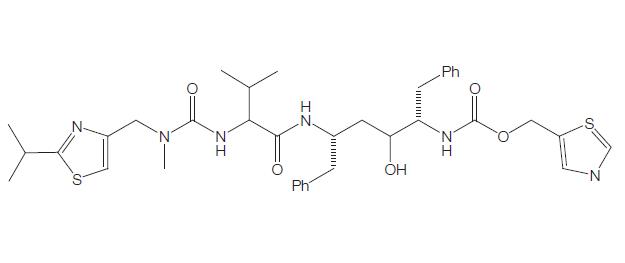Ritonavir: an important drug in the antiviral field
Abstract
Ritonavir, as an antiviral drug, plays an important role in the medical field, especially in antiviral therapy. This article will introduce its basic information, efficacy, and action, usage and dosage, side effects, and precautions in detail to help readers have a more comprehensive understanding of this drug.

Basic information
Ritonavir belongs to the protease inhibitor drugs. It is usually sold under the trade name Ritonavir tablets and is used alone or in combination with antiretroviral nucleosides for the treatment of patients with advanced or non-progressive AIDS. In recent years, Ritonavir has also been used as part of the Nematavir tablet/Ritonavir tablet (Paxlovid) combination package for the treatment of COVID-19 patients with severe risk factors.1

Working principle
HIV protease is a key enzyme in the replication process of the HIV virus, which is responsible for cutting the long-chain polyprotein of the virus into a single protein with biological activity, which is an important step for the virus to mature and have the ability to infect. Ritonavir binds to the active site of the HIV protease and inhibits its activity, thereby blocking the cleavage of the viral polyprotein, resulting in the viral particles remaining in an immature state and unable to effectively infect new cells. This inhibition helps control HIV infection and prevent the disease from getting worse.2
Efficacy and effect
Inhibition of HIV replication: Ritonavir can inhibit the activity of HIV reverse transcriptase, and block the replication and reproduction of the HIV virus in the host cell, thereby slowing the development and spread of viral infection.
Improve immune system function: By reducing the decline in the number of CD4+T cells, Ritonavir helps the immune system control HIV infection, stops the virus from destroying the immune system, and improves the body's resistance to the virus.
Reduced complications: The use of ritonavir can reduce the risk of complications in HIV-infected patients, such as AIDS, pneumonia, hepatitis, etc., and improve the quality of life and prognosis of patients.
Delay disease progression: By controlling HIV replication and reducing the viral load, ritonavir helps to delay the progression of HIV infection and prolong the survival of patients.3
Usage and dosage
The dosage of ritonavir varies according to the condition and treatment regimen. When treating HIV infection, the initial dose for adults is usually 300mg twice daily (bid) and gradually adjusted to a maximum dose of 600mg twice daily depending on the individual. In children, the dose should be adjusted according to body weight or body surface area.
In the Paxlovid combination package, the recommended dose of ritonavir is 100mg per dose, taken in combination with Nematavir 300mg every 12 hours for 5 days.4
Side effects and precautions
Ritonavir, while effective, can have some side effects. Common side effects include fainting, postural hypotension, dry mouth, mouth ulcers, throat irritation, cough, indigestion, nausea, vomiting, diarrhea, and abnormal taste. In addition, there may be renal insufficiency, anemia, elevated white blood cells, prolonged coagulation time, fat metabolism disorders, and other phenomena.
When using, need to pay attention to the following points:
Use as prescribed:
Do not stop taking or reduce the dosage without a doctor's examination.
Allergy contraindication:
Contraindicated for patients allergic to ritonavir or any ingredient in the combination package.
Drug interactions:
Ritonavir interacts with a variety of drugs and may affect the metabolism and efficacy of other drugs. Be sure to tell your doctor or pharmacist when taking other medications.
Regular monitoring:
In the course of treatment, blood lipid, blood sugar, liver and kidney function, and other indicators should be regularly monitored to find and deal with adverse reactions in a timely manner.
Lifestyle adjustment:
Maintain good living habits, regular work and rest, and avoid overeating, smoking, and drinking, so as not to aggravate liver damage.5
Summary
Ritonavir, as an important antiviral drug, plays an important role in the treatment of HIV infection and COVID-19. However, it should be used in strict accordance with medical advice, paying attention to side effects and drug interactions to ensure therapeutic efficacy and patient safety. I hope this article can help readers better understand Ritonavir and protect their health.
References:
[1] J. BAUER. Ritonavir: An Extraordinary Example of Conformational Polymorphism[J]. Pharmaceutical Research, 2001, 18 1: 859-866. DOI:10.1023/A:1011052932607.[2] M MARKOWITZ. A preliminary study of ritonavir, an inhibitor of HIV-1 protease, to treat HIV-1 infection.[J]. New England Journal of Medicine, 1995, 333 23. DOI:10.1056/NEJM199512073332204.
[3] RISTO S CVETKOVIC K L G. Lopinavir/ritonavir: a review of its use in the management of HIV infection.[J]. Drugs, 2003, 63 8. DOI:10.2165/00003495-200363080-00004.
[4] C M CHU. Role of lopinavir/ritonavir in the treatment of SARS: initial virological and clinical findings.[J]. Thorax, 2004, 59 3. DOI:10.1136/thorax.2003.012658.
[5] FUXIANG WANG . Efficacy and safety of SIM0417 (SSD8432) plus ritonavir for COVID-19 treatment: a randomised, double-blind, placebo-controlled, phase 1b trial[J]. The Lancet Regional Health: Western Pacific, 2023, 38. DOI:10.1016/j.lanwpc.2023.100835.
You may like
Related articles And Qustion
See also
Lastest Price from Ritonavir manufacturers

US $0.00/Kg/Bag2025-04-21
- CAS:
- 155213-67-5
- Min. Order:
- 1KG
- Purity:
- 98%-102% HPLC
- Supply Ability:
- 100kgs

US $0.00/Kg/Bag2025-04-21
- CAS:
- 155213-67-5
- Min. Order:
- 2Kg/Bag
- Purity:
- USP, GMP
- Supply Ability:
- 20tons




